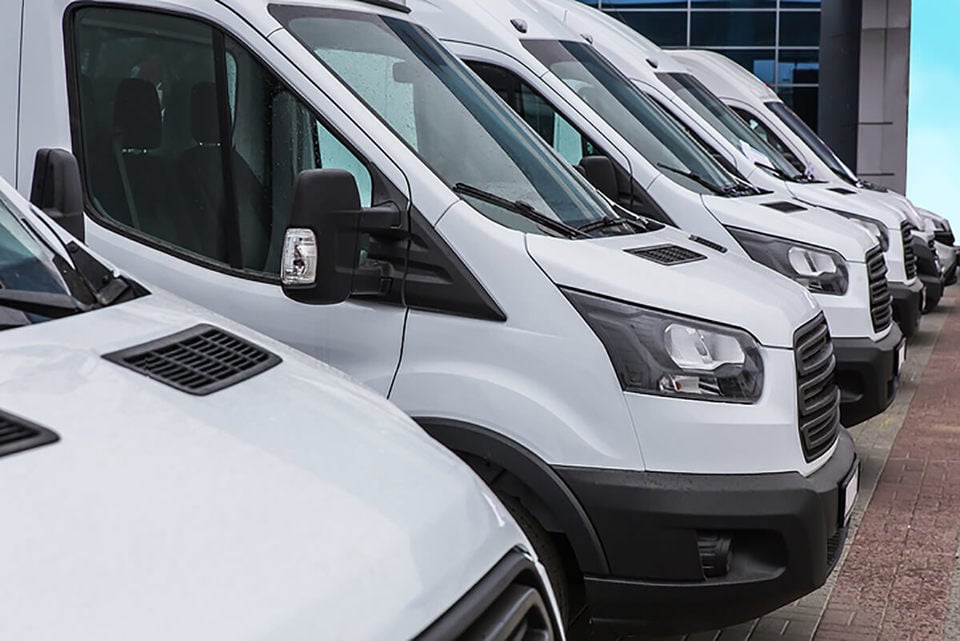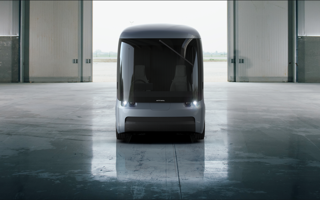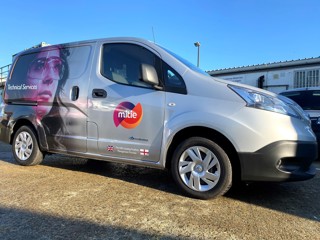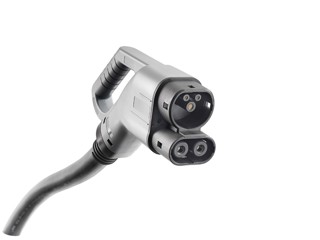Van fleets are tentatively exploring the petrol and electric alternatives after years of diesel dominance in the light commercial vehicle (LCV) market, the FN50 survey suggests.
Among the 443,454 vans comprising the FN50’s light commercial vehicle fleet, the trend away from diesel – which remains utterly dominant – was much less pronounced than the rapid changes witnessed in the car market.
The data, from the country’s top 50 vehicle leasing companies, suggests a modest future swing from diesel to petrol, but there is scant indication of an upswing in alternative fuel vehicles (AFV).
While for cars, trends are driven primarily by company car tax rates, in the van market, it is down to fit for purpose, cost and availability.
Average CO2 emissions per vehicle from the FN50 van fleet dropped by 2.4g/km in 2019 to 156.5g/km and, based on latest additions to the fleet which last year were averaging 152.9g/km, the average should continue to edge downwards in 2020 – not withstanding the impact on official emissions of the new WLTP testing regime.
The actual proportion of diesel vans on the FN50 fleet increased slightly in 2019 – up from 96% to 97.9%. However, future diesel van orders are down below 95% with petrol nabbing the vast majority.
Full electric vans crept up from 0.8% to 1%, but hybrids (pure and plug-in) failed to dent the data last year. Based on new orders, demand for electric vans suggests another modest gain this year, but despite Ford’s launch of the Transit Custom Hybrid, the data doesn’t suggest any appetite for hybrid vans.
Arval fleet consultant David Watts is not surprised that there hasn’t been a noticeable shift towards petrol vans.
“The BIK taxation system is influencing driver choices in the fleet car market which doesn’t exist in the LCV market,” he said.
“Unlike the car market, there are very few equivalent petrol options compared with the diesel models available and, even when there is an equivalent petrol alternative, the fuel efficiency and lease costs of the diesel model are still noticeably better than for the petrol.”
LeasePlan head of consultancy and customer data services Matt Walters believes demand for electric is starting to materialise.
“Supply of low-emission LCVs until recently has been limited, but operators are starting to become more aware of the wholelife cost benefits of electric vans,” he said.
“As a result, we are now starting to see an increase in demand among our customers. With a third of vans doing less than 80 miles in a day, electric commercial vehicles are a viable option for business-critical fleet operators – especially for those operating in urban areas.”
Alison Bell, marketing director at Venson Automotive Solutions said the lack of momentum away from traditional powertrains was due to lack of choice in the market.
“Once more models become available there is likely to be more uptake, but it will always be dependent on the requirements of the vehicle in the role it performs for the business,” she said.
“Over time, it’s likely that van fleets will end up being a mix of powertrains, with pure electric suited for shorter distances carrying lighter loads and hybrids for medium journey lengths and combustion engines taking longer, frequent journeys and carrying heavier loads.”
In the medium term, van fleet operators could find themselves facing significant cost and/or operational challenges if concerns over urban air quality prevent delivery and logistics fleets operating freely within the city limits.
London’s congestion and toxicity charges are already making trips into the capital more expensive for non-compliant vehicles and a handful of other cities are considering similar measures.
Chris Warburton, managing director of CoolVan, a specialist refrigerated vehicle converter, reported a marked increase in demand for electric vans to deliver fresh food into central London.
“We are getting a significant number of enquiries for electric vans – especially from London-based delivery operations – but supply has sometimes been an issue,” he said.





















Login to comment
Comments
No comments have been made yet.